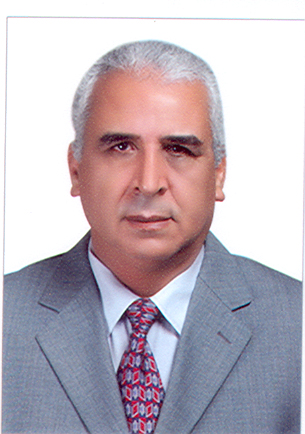Journal of Pharmaceutical Care & Health Systems
Open Access
ISSN: 2376-0419
ISSN: 2376-0419

Mohamed Mohamed Sayed-Ahmed
Professor, Pharmacology Department
Saudi Arabia
Dr. Mohamed M. Sayed-Ahmed, Professor of Pharmacology, graduated from College of Pharmacy, Egypt in 1985. Two years later, he joined the National Cancer Institute, Cairo University, Egypt and completed his master thesis. In 1994, he started his Ph.D. at College of Medicine, Duke University Medical Centre, North Carolina, USA. There, he spent three years investigating the mechanisms whereby anticancer drugs interfere with carnitine system and how carnitine supplementation prevents chemotherapy-induced multiple organ failure. In 1997, he got his Ph.D in Pharmacology and Experimental Oncology from National Cancer Institute, Cairo University, Egypt. In 2004, he joined the Department of Pharmacology, College of Pharmacy, King Saud University as one of the university staff and research group member.
Research Experience in studying gene expression of biological markers as potential therapeutic targets in different types of cancer including, breast and ovarian cancer.
Research Experience in using L-carnitine and Propionyl-l-carnitine as protective agents against Anticancer drug-induced organs toxicity.(Duke University, Medical Center, USA).
Research Experience in modulation of Anticancer drugs-induced organ toxicity. (Duke University, Medical Center, USA).
Research Experience in study the effects of anticancer drugs on cardiac and hepatic metabolism using isotopic dilution technique (Duke University,Medical Center, USA).
Research Experience in isolation of Cardiac myocytes and liver hepatocytes as toxicity model to study radioactive substrate oxidation in response to anticancer drugs (Duke University, Medical Center, USA).
Research Experience in modulation of tumour cell drug resistance and in tissue culture Technique dealing with the growth of human tumour cells, tumour cell cycle phase determination using flowcytometery.
Good experience in screening the potentially antiangiogenic and antimetastatic agents as biological therapy of cancer and in screening anticancer agents and the interaction between anticancer drugs and other drugs using different tumour cell lines.
Good experience in using HPLC technique for determination of plasma level of anticancer drugs, Antibiotics, Narcotics, and L-carnitine as a routine used for the treatment and follow up of Egyptian Cancer Patients.(Therapeutic drug monitoring)